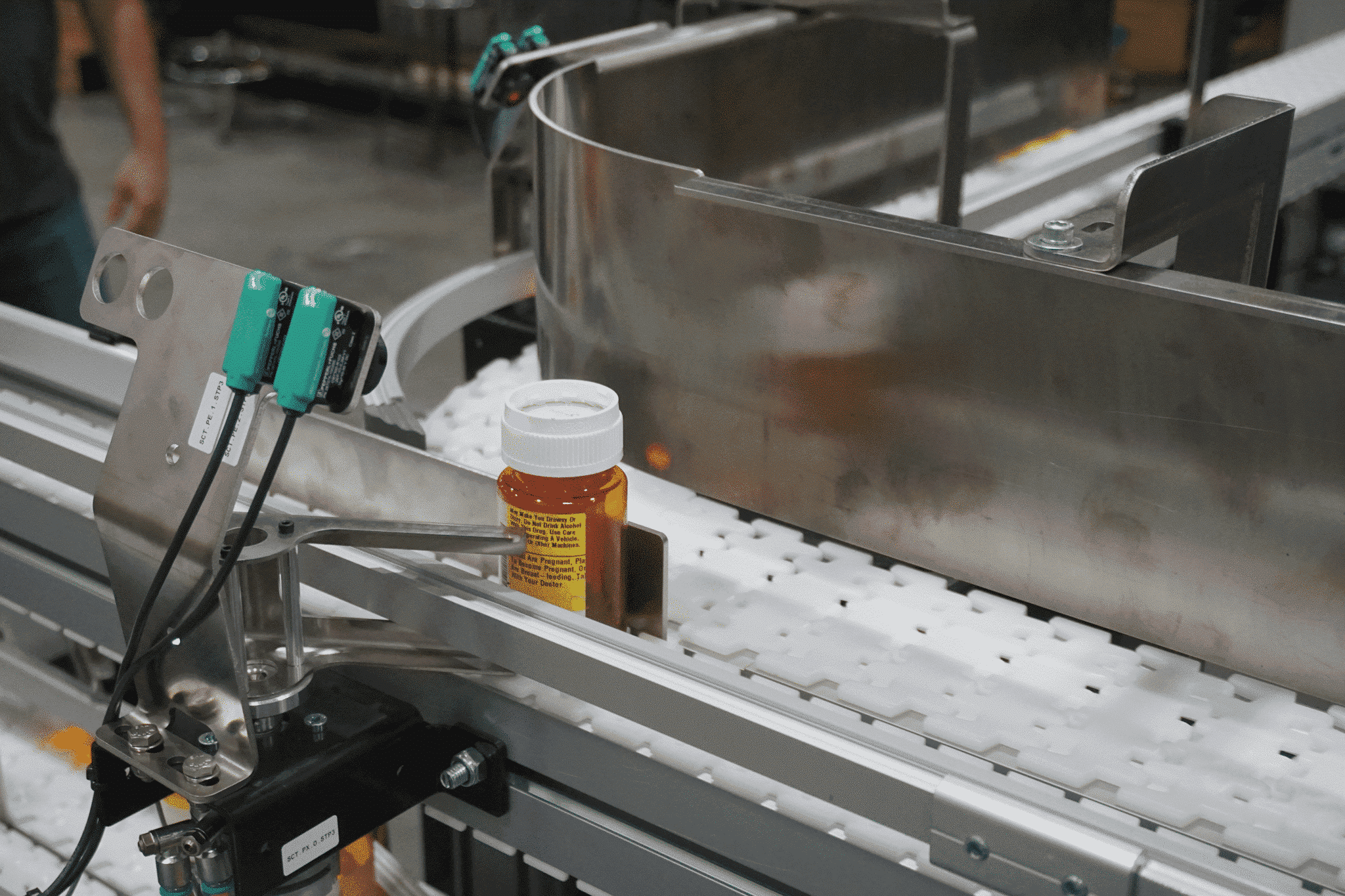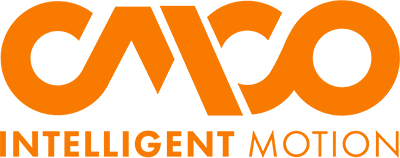
![]() In the highly regulated and quality-driven world of pharmaceutical operations, every production process must adhere to strict standards. From manufacturing to packaging, ensuring the integrity and safety of pharmaceutical products is paramount. Some critical components that contribute to a successful pharmaceutical operation are the implementation of inspection and testing processes.
In the highly regulated and quality-driven world of pharmaceutical operations, every production process must adhere to strict standards. From manufacturing to packaging, ensuring the integrity and safety of pharmaceutical products is paramount. Some critical components that contribute to a successful pharmaceutical operation are the implementation of inspection and testing processes.
Integrating these processes with your conveyor systems is pivotal in maintaining quality control, optimizing efficiency, and mitigating risks. Understanding the significance of inspection and testing integration in pharmaceutical operations, particularly in conveyance, is critical to longevity in the industry.
1. Ensuring Product Integrity
The pharmaceutical industry demands meticulous attention to detail to maintain the integrity of its products. Inspection and testing accessories on Dorner conveyors are critical quality and safety checkpoints in production. Conveyors can be equipped with advanced technologies, including vision systems, metal detectors, X-ray machines, and other verification systems. Such technologies enable identification and elimination of potential contaminants, defects, or foreign substances that may compromise product safety or efficacy.
With precise inspection capabilities, automated inspection systems can detect even the tiniest flaws or deviations, such as damaged packaging, incorrect labeling, or missing components. This can then be communicated to the conveyor’s integrated rejection system to remove faulty products. By swiftly identifying and removing defective products from the production line, pharmaceutical companies can uphold throughput, the commitment to quality, and minimizing the risk of distributing substandard or potentially harmful drugs.
2. Compliance with Regulatory Standards
Pharmaceutical operations are subject to stringent regulations and guidelines imposed by regulatory bodies such as the FDA (Food and Drug Administration) and EMA (European Medicines Agency). Compliance with these standards is crucial for consumer safety, maintaining a company’s reputation, and avoiding legal consequences.
Inspection and testing systems integrated with conveyors are pivotal in achieving and demonstrating compliance. These systems can be customized and programmed to meet specific regulatory requirements, ensuring that the necessary checks are at every stage of the production process. Whether verifying batch numbers, tracking expiration dates, or confirming proper seal integrity, integrated inspection and conveyor systems provide accurate and reliable data to support regulatory audits.
Moreover, inspection and testing technology can often be integrated with data logging and traceability features, enabling the generation of comprehensive reports and documentation. This documentation is crucial in establishing a transparent and auditable trail of product quality, giving regulatory authorities confidence in the company’s commitment to adhering to guidelines.
3. Optimizing Efficiency and Reducing Waste
Efficiency is a critical driver in any pharmaceutical operation, directly impacting productivity and profitability. Inspection and testing technology incorporated with Dorner conveyors substantially benefits process optimization and waste reduction.
These accessories enhance operational efficiency by automating inspection processes, significantly reducing the need for manual inspections. Automated inspections improve speed and ensure consistency in quality control, minimizing the risk of human error. For example, vision systems strategically placed throughout the conveyor line can perform multiple checks simultaneously by leveraging cutting-edge technologies, accelerating the overall production cycle.
The early detection of defects or contaminants through inspection systems helps prevent costly rework or product recalls. Additionally, identifying and addressing issues promptly reduces the potential for waste, saving time and resources. By reducing scrap and rework rates, pharmaceutical companies can improve their bottom line and maximize the utilization of their production capacities.
4. Mitigating Risks and Protecting Brand Reputation
The consequences of compromised product quality or safety in the pharmaceutical industry can be severe, ranging from legal implications to irreparable damage to brand reputation. Inspection and testing integrated conveyor systems are a robust risk management tool, safeguarding companies against such risks.
By implementing these systems, pharmaceutical operations can proactively identify and mitigate potential hazards before products reach the market. Swift detection and removal of defective or contaminated items help prevent adverse events and protect patient safety. Moreover, by ensuring consistent product quality, companies can cultivate trust among healthcare professionals and consumers, strengthening their brand reputation and fostering long-term success.
In the pharmaceutical industry, where precision, quality, and safety are non-negotiable, inspection and testing integrated conveyor systems are indispensable. They enable pharmaceutical operations to uphold product integrity, comply with regulatory standards, optimize efficiency, and mitigate risks. By investing in advanced inspection and testing technologies, pharmaceutical companies can ensure that their products meet the highest standards of quality and safety, ultimately contributing to the success of their operations and the well-being of patients worldwide.
Custom Designed Inspection and Testing Conveyor Systems
1100 Miniature Conveyor with Backlight Technology
The 1100 Series Conveyor Platform is flexible to be used in diverse applications, with parts able to be stopped directly over lighted sections or move along without interruption. Its unique design offers LED panel access without having to remove the belt. Different-colored belts can provide contrast against the product.
Businesses appreciate the 1100 Series Conveyor Platform’s low profile, helping the machine fit into tight spaces while making room for more devices and employees. It is Clean Room Class 100 verified* and used for medical, pharmaceutical, life sciences, and industrial applications.
Dorner’s 1100 Miniature Belt Conveyors feature a pinch-drive design with low belt tension that virtually eliminates belt stretching while enabling operation free of maintenance. Its T-slot allows for a T-bar to ease and flexibly mount components or accessories used for automation.
2200 Low-Profile Conveyor Fit for Visual Inspection
The low profile of Dorner’s 2200 Series Conveyors makes these machines perfect for easy integration with your facility’s inspection and testing systems.
Our 2200 Series Conveyors are ideal for integrating new and existing equipment, thanks to a narrow profile that enables them to tuck under and inside machinery. This helps make Dorner’s 2200 Series Conveyors suitable for part removal and product handling. The 2200 Series Conveyors’ Precision Move feature gives businesses greater product control, accuracy, and visual inspection capability.
The 2200 also features t-slots built directly into the frame for easy accessory mounting. T-slots offer universal and flexible mounting options for a wide variety of accessories including sensors, vision systems, and guiding.
AquaPruf Conveyor Equipped with Metal Detection
One unique feature of Dorner’s AquaPruf Series conveyors is that they can fit into existing metal detection units with a metal free zone to ensure accurate detection of contaminants. This feature proved very beneficial to this customer, which required a solution on an accelerated timetable and could not wait for a new metal detection conveyor system to arrive.
Custom Rejection Systems
Rejection conveyor systems offer companies a range of possibilities when removing product from their lines. The line can stop, with an alarm sounding, until an employee can pull the questionable product. In another scenario, a retractable conveyor may automatically retract a tail, dropping the questionable product into a reject bin. For smaller items, a high velocity air nozzle can be mounted to the conveyor and programmed with an inspection system to accurately and quickly blow defective product from the conveyor line. These solutions are precious on floors where space is at a premium and in facilities where employees can’t monitor products that fail inspection.
Dorner offers a range of conveyors that can be outfitted with inspection and testing accessories that can be utilized in a variety of applications. These conveyors are designed to keep throughput high, while maintaining an impeccable level of quality.
Dorner’s inspection and testing conveyance solutions are configurable on DTools. Once in DTools, you will have to opportunity to build your ideal conveyor. For further assistance or larger custom project contact our customer service team here.





